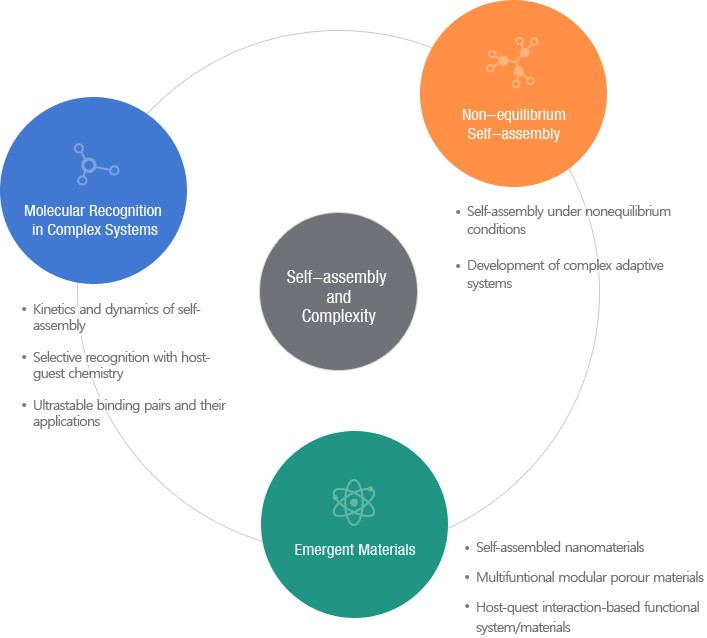mainmenu
About CSC

Complex systems are broadly defined as a system of interconnected components that interact nonlinearly to give rise to emergent properities. These systems typically operate far from equilibrium and require a constant flow of energy. Historically, chemistry has focused on approximating complex systems with simpler models studied at equilibrium. In the past decade, however, buoyed by application of theoretical frameworks such as network and information theory, there has been a renewed interest in the chemistry of complex systems. In particular, developments in the study of living systems and materials have inspired a parallel movement in chemistry towards the description, synthesis and manipulation of complex adaptive systems-complex systems that adapt to the environment and learn or evolve over time. One of the central processes in generation and organizing complex adaptive systems is self-assembly-the process of autonomous organization of multiple components into patterns or structures without human intervention.
Recently, self-assembly was identified by Science in their 125th anniversary issue as one of the “25 Big Questions” of future science. Our goal is to understand the fundamental principles behind complexity and emergence in self-assembly and, based on this knowledge, to study molecular network systems and develop a new class of nanomaterials, emergent materials. At one end, we will investigate the fundamental principles that underlie complexity and emergence in various chemical systems. Even for relatively simple self-assembling systems operating at equilibrium, the underlying dynamics are often poorly understood. A second area of investigation is the design and development of molecular network systems- and integrated system of multiple molecular components, analogous to complex adaptive system observed in biology. Such systems offer a new level of complexity for chemistry and material science. In parallel, we will also investigate the synthesis of emergent materials. Using additional insights gained from the study of complexity and emergence in model systems, we will develop novel methods to rationally design and tune the properties of different porous materials via self-assembly. These novel materials can have useful applications in electronics, renewable energy and nanotechnology. To this end the Center for Self-assembly and Complexity(CSC) was established in August 2013, as one of the Research Centers of Institute for Basic Science(IBS) by the Korea government.


